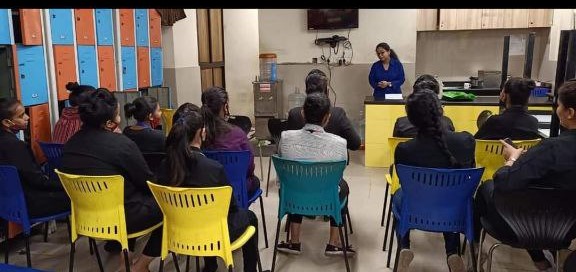The College of Montessori and ECCE, managed by Vision Public Charitable Trust, is a highly regarded teacher training institute in Vadodara, India. It offers a variety of diploma and postgraduate diploma programs in ECCE, Montessori, NTT, and school management. The ECCE program focuses on providing comprehensive knowledge and practical skills for working with children aged 0-6 years. This article will discuss the importance of ECCE teachers in early childhood development.
Role and importance of ECCE Teachers.
The role of an ECCE teacher is to create a positive and nurturing environment that promotes a child’s overall growth and development. ECCE teachers have a significant impact on the lives of young children, as they are the first teachers a child comes in contact with. Here are some of the roles and responsibilities of an ECCE teacher:
- Creating a Safe and Supportive Learning Environment: ECCE teachers must ensure that the learning environment is safe and supportive for young children. They must create a warm and welcoming environment where children feel comfortable and secure.
- Developing Age-Appropriate Curriculum: ECCE teachers must design and implement a curriculum that is age-appropriate and stimulating. They must ensure that the curriculum is aligned with the child’s developmental needs and interests.
- Encouraging Social Interaction: ECCE teachers must promote social interaction among young children. They must facilitate activities that promote teamwork, cooperation, and communication among children.
- Assessing Children’s Progress: ECCE teachers must assess the progress of each child regularly. They must identify the strengths and weaknesses of each child and develop strategies to help children reach their full potential.
- Parental Involvement: ECCE teachers must work closely with parents and involve them in their child’s learning journey. They must communicate regularly with parents and keep them informed about their child’s progress.
At the College of Montessori and ECCE Managed by Vision Public Charitable Trust, teachers are trained to become skilled educators who can create a positive and nurturing learning environment for young children. The institute provides practical training to teachers, which includes working with young children, observing them, and providing feedback on their progress. Teachers are also trained in designing age-appropriate curricula and promoting social interaction among young children.

One of the critical roles of an ECCE teacher is to create a safe and supportive learning environment. Children must feel secure and comfortable in their learning environment to be able to learn and develop. ECCE teachers at the College of Montessori and ECCE Managed by Vision Public Charitable Trust are trained to create an environment that is warm and welcoming, where children feel safe and comfortable.
other Roles and importance of ECCE teacher.
Another essential role of an ECCE teacher is to develop an age-appropriate curriculum that is stimulating and challenging for young children. The curriculum must be designed to align with the developmental needs and interests of the children. ECCE teachers at the College of Montessori and ECCE are trained to design a curriculum that is engaging, interactive, and designed to support learning.
ECCE teachers are also responsible for encouraging social interaction among young children. Children learn best when they are engaged in social activities and have opportunities to interact with their peers. ECCE teachers at the College of Montessori and ECCE Managed by Vision Public Charitable Trust are trained to create opportunities for children to work in groups, participate in group activities, and engage in social play.
Assessing children’s progress is also a critical role of an ECCE teacher. ECCE teachers must identify the strengths and weaknesses of each child and develop strategies to help children reach their full potential. They must also provide regular feedback to parents to keep them informed about their child’s progress.
At the College of Montessori and ECCE, teachers are trained to involve parents in their child’s learning journey. Parental involvement is essential in supporting a child’s learning and development. ECCE teachers are trained to work closely with parents, communicate regularly with them, and involve them in their child’s learning journey.
In conclusion, the role of an ECCE teacher is critical in shaping a child’s early years. ECCE teachers must create a positive and nurturing learning environment, design an age-appropriate curriculum, promote social interaction, assess children’s progress, and involve parents in their child’s learning journey. The College of Montessori and ECCE Managed by Vision Public Charitable Trust provide comprehensive training to teachers to become skilled educators who can positively impact the lives of young children.
about me

Aneet kaur
Director, College of montessori and ECCE.
President, ECCE council.



